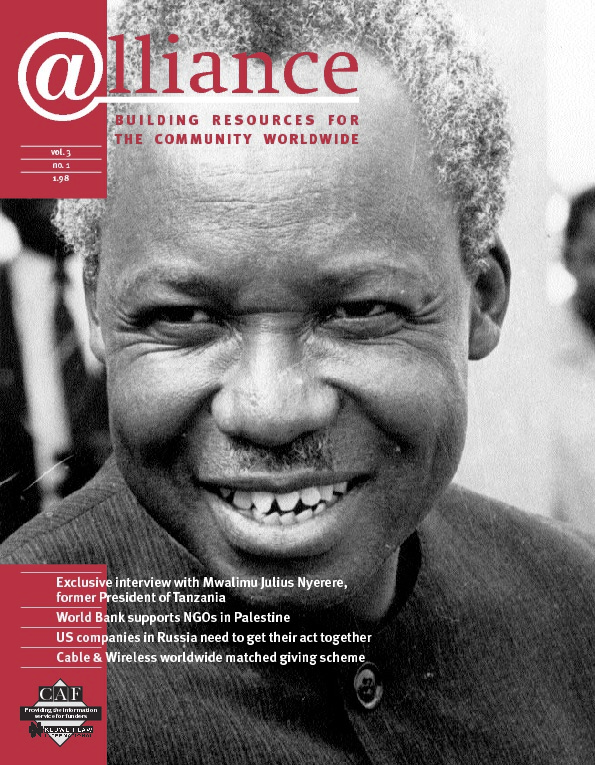I first opened this book while researching how much large multinational companies contribute. I searched for the answer. I read the introduction. I scanned the chapters on the Global competitive framework, Working with stakeholders worldwide, Partnerships for change. I avidly absorbed every table and footnote, but in vain. Finally, I realized this is not a global reference book, but it is more valuable.
This is a useful resource for anyone working on community involvement. It provides good clear examples of why, how and what companies do in the third sector. In addition to several case studies it also provides a useful update on the corporate approach to ‘stakeholder’ theory. While we often hear about the stakeholder approach from politicians and activists, it is rare to have the corporate viewpoint articulated clearly.
Why is Ted Turner offering the UN $1 billion? The apocryphal response is that executives go through three stages in their careers — To Get On, To Get Honest, To Get Honours. Why do companies spend shareholders’ money on apparently non-productive assets? The answers are equally nuanced. Chris Marsden addresses this issue in his introduction and it is a continuing theme throughout the book. The reasons vary from a mix of altruism and the promotion of the greater whole or common good to self-interest, sometimes enlightened and sometimes less so. Paradoxically, European executives are more likely to agree that it is ‘a subtle form of promotional activity that benefits my company directly’ than their counterparts in Japan or ‘the home of hype’, the USA.
What do companies do? A virtue of this study is that it demonstrates that while globalization is alive and well in corporate citizenship, it does not imply that ‘one size fits all’. Indeed, the reverse is often true. There are vivid illustrations of small and medium-sized company activities in emerging markets such as Brazil and Jamaica. Other programmes led by giant companies such as Tata Steel of India or the San Miguel Foundation in the Philippines show that it is not always Western companies that provide the lead.
How do companies practise good corporate citizenship and a stakeholder attitude? By working in partnerships, but again diversity dominates. In the past there was a greater need for self-reliance. Recently, the growth of NGOs and potential partners has gone ballistic. Choosing the right one or combination is a new challenge.
This book has several strengths. It is culturally sensitive and covers a wide geographic field. It provides useful insights into corporate citizenship in the USA, Europe and Japan, and has a good chapter on emerging markets. It has lots of summaries, quotes, sidebars, tables and charts. There is one major lacuna — there is no index: this does make finding specific companies, countries or persons more difficult. However, it’s always good to have something to look forward to in the next edition.
Global Corporate Citizenship: Rationale and Strategies
by David Logan, Delwin Roy and Laurie Regelbrugge
The Hitachi Foundation £25
To order phone Corporate Citizenship International on +44 171 836 6132
Julian Oliver is the first Social Investment Manager at Shell International Ltd. He is a founder member of CENPO, the Centre for European Not-for-Profit Organizations and initiated the Corporate Citizenship Europe group within the European Foundation Centre





Comments (0)